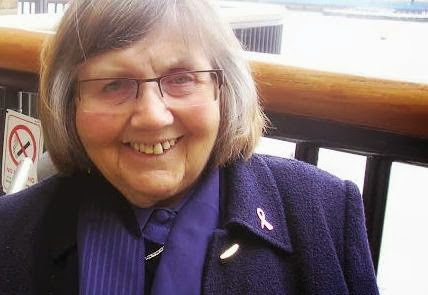Introduction
Contributing factors to this austerity include negative
language, the lack of collective service user voices, placing people who
require services in ‘silos,’ meetings by professionals each with their own
agendas, power tensions, medical model
training, restricted funding and ‘silo’ funding streams and institutional
oppression to name but some. An
exploration of these issues reveals a very large ‘elephant’ that virtually
defies edification, deconstruction and rebirth.
Negative
language such as ‘burden,’ vulnerable’ and ‘challenging behaviour’ used
to describe people who need support enables professional people and groups to
keep service users at a distance. This
in turn leads to professional inertia and a lack of support for service
users. This avoids tackling fundamental
and basic issues such as spending time and talking with people who are isolated
and lonely and doing tasks that are of concern to them.
The
lack of service user voices or, as professional people often state, the lack of the ‘right’
service users voices means that they cannot do anything until these individuals
and groups are identified and consulted.
Many consultations take place with service users and needs are known but
there is seldom a report back to those who participated. Services that do change or are extended
often take months by which time further consultation takes place. Service users who do participate often become
disenchanted as their views are dismissed while the search continues for that
elusive service user who will change the face of social care services. Those service users with the tenacity and
expertise to continue are often expected to contribute without acknowledgement
of their skills and expertise, the need for expenses, the cost of attendance,
lack of briefing or information in appropriate formats to enable them to have
equality in a group setting. The outcome
of these experiences enables professional people to continue to think they
‘know best.’
Placing
service users in silos, mainly according to impairment or situation, often denies
potential service uses and those already receiving support, a person centred,
holistic assessment or review. This can
compromise choice and control and the gateway to independent living. Direct payments continue to be denied for
certain groups of people, such as those in the mental health system. On challenging this lack of information for
the potential service user it transpires that social workers find the process
and payments system difficult and tend to blame the service user’s inability to
manage as the issue.
Meetings
that engage professional people from a number of disciplines
is a costly exercise and seldom results in positive outcomes for service
users. Meetings take up vast amounts of
time, with time taken to produce agendas, minutes and reports that seldom
produce results conducive to improved lives for people who require
support. Meetings are often just a
repeat of what has already been discussed with no tangible outcomes. At a recent seminar that focused on social
care at a time of ‘austerity’ the question at the end of the discussion was ‘so
what do you think today has achieved?’
The response was a shocked ‘Now that’s an interesting question,’
followed by silence.
Power
tensions within health and social care structures show the difficulties
that arise from the ‘silo’ approach in determining what outcomes will be
achieved from a service user perspective.
Senior managers involved in managing budgets feel responsible for
ensuring it is spent on achieving outcomes that will benefit their service user
clientele. Many needs may not be
directly applicable to their budget and so the holder either has to become
creative or waste it in trying to find alternative solutions. Long delays ensue in providing any support as
service user’s lives do not fit these silo arrangements.
Medical
model training does not generally suit the social care sector and framework
and what is offered does not always equip staff with the appropriate social
model skills. Far more service users
trained to deliver a social model perspective and programme are required to
present on professional courses and at seminars and conferences. Service users are the experts in this field
and yet their expertise and valuable contribution is often overlooked.
The
‘elephant’ overarching these issues is funding together with an approach and
attitude towards service users that is mainly negative, where they are viewed
as a burden and incapable. This leads to
a reluctance to communicate, share power and budgets and creates a ‘them and
us’ situation with mistrust by service users who realise and understand that
nothing will change.
Institutionalised
oppression continues to exist and makes it virtually impossible for
service users to understand the systems and structures within which
professional people work and the barriers that exist to keep service users
out. Professional people themselves
often state they do not understand the systems and structures within their
culture and so where does that leave the lives of service users. Trying to break through them causes anxiety,
distress, frustration and anger by service users, and often by professional
people too.
From a
service user perspective to watch and listen to professional people
struggle to eat this gigantic ‘elephant’ one bite at a time is asking for an
impossible outcome. It devalues the
lives of those who require support and wastes vast amounts of money and time
and creates an unhealthy appetite as people spend time chewing. The cost of the numbers attending meetings in
any one week is phenomenal and is seldom evaluated in terms of what has been
achieved and what the true costs are in any given period. Professional people often declare that the
lunch break brings welcome respite from this difficult ‘animal.’ Deconstructing
this elephant is unpalatable and unlikely ever to occur and is made harder by
the inequality of funding that exists with a health budget of £150 billion
pounds against a social care budget of £8 billion pounds. A whole systems approach to health and
social care in this time of ‘austerity’ may be the ‘ideal’ but who dares take
up the challenge?
